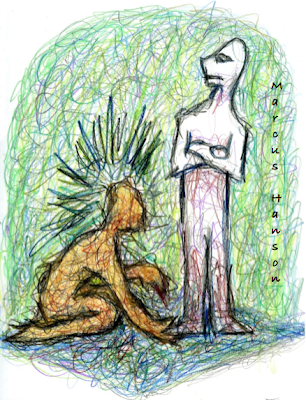Now you are the body of Christ, and each one of you is a part of it. And God has placed in the church first of all apostles, second prophets, third teachers, then miracles, then gifts of healing, of helping, of guidance, and of different kinds of tongues. Are all apostles? Are all prophets? Are all teachers? Do all work miracles? Do all have gifts of healing? Do all speak in tongues? Do all interpret? Now eagerly desire the greater gifts. And yet I will show you the most excellent way.-1 Corinthians 12:27-31
The big questions at hand. Should everybody have one particular gift, or does anybody have all the gifts? They are not flat out answered in this passage, but if you take the entire passage of 1 Corinthians 12:12-31 into consideration, the answer should be obvious. Which is no on both counts. However, there are denominations (which I will not name in accusation) that overtly think otherwise; despite the Bible’s evidence to the contrary. If you don’t have the gift of tongues, in their minds it’s a sign you are an unrighteous person. Also in practice, if not in actual polity, most churches do expect some people to do it all; we call them pastors. So we don’t have to carry our own fair share of the load of responsibility. So the church in such cases seems like a quadriplegic. All the parts are there, but most are inactive. The drop out rate for new pastors these days is at an all time high. Many don’t last for more than 5 years before they are burnt out. All because the lay people do not desire the greater gifts, and the responsibility that goes with them. All because we only have love for self, not the leaders whom we put such unrealistic burdens upon. This is a very non-excellent way to run a church.
 |
| Inflamed Heart |









